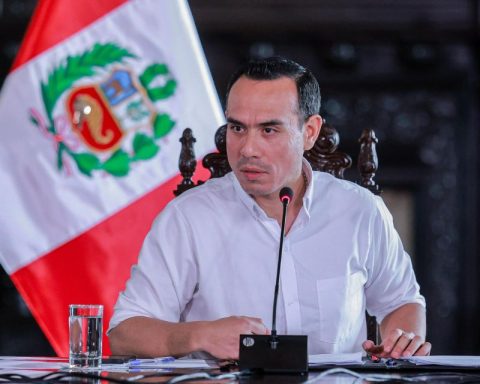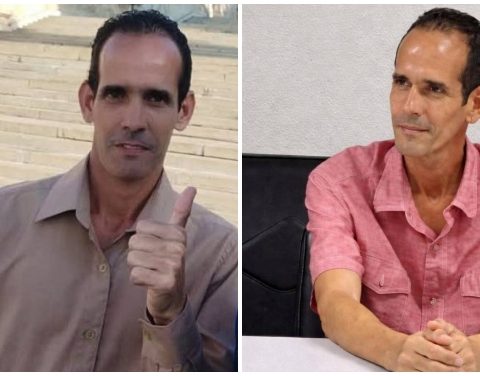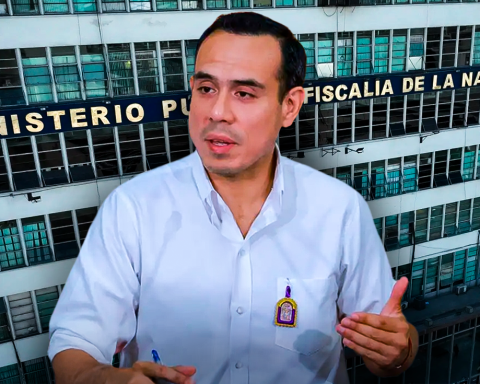The Malvinas war took place in the midst of an economic crisis incubated by the plan of adjustment implemented from the beginning of the dictatorship by the first Minister of Economy of those seven years, José Alfredo Martínez de Hozand which showed its collapse in 1981 with the implosion of the “tablet” modelperiodic and controlled devaluation instrument.
The crisis had broken out with a strong devaluation jump in the currency and the return of inflationary processes and, above all, with the immense burden of foreign debt, which went from US$8,000 million in 1975 to US$45,000 million in 1983, when the dictatorship left power.
The economic uncertainty that was precipitating it accelerated the transition from then-dictator Jorge Rafael Videla to another dictator, Roberto Viola.
After the crisis caused by Martínez de Hoz lbequeaths the economic team of Lorenzo Sigaut, author of the phrase “he who bets on the dollar, loses”.
Sigaut’s plan”fails, because there is a very important rise in inflation, and a loss of real purchasing power”, told Télam Martin Cuesta, historian at the UBA and researcher at the National Council for Scientific and Technical Research (Conicet).
At the end of 1981, Leopoldo Galtieri make a hit within hit, displace violatake power and appoints Roberto Alemann as Minister of Economy, “who adopts orthodox measures“Costa said.
In this regard, he specified that “between January and March he does a classic orthodox program, one of those we saw many times in Argentina,” and added that Alemann “spoke of the 3D plan: deregulation, disinflation and destatization”.
Still, he noted that “the only thing that was carried out was a drop in inflation and a strong deregulationwhich generated a significant devaluation in January (1982), but nothing was privatized due to government opposition”.

After the first shock, the exchange rate stabilizes and inflation falls, and at the end of March Alemann travels abroad to try to fix the public debt at that time, which reached US$ 17,000 million, with the aim of refinancing the interest for that year.
“There he finds out, being abroad, that the Malvinas was taken. The military cared about the war, not the economic plan,” Cuesta pointed out.
During the days following beginning of the war, on April 2, there was a run on bank depositss to take refuge in the dollar.
Cuesta recalled that “Alemann, in an interview with (the journalist Bernardo) Neustadt, said that ‘Argentines like to go to war with cash,'” to justify the outflow of deposits.
He also highlighted that “the war was financed with own resources”, therefore “it did not generate a deficit”.
In this point, The former Secretary of the Treasury of the dictatorship, Manuel Solanet, and Alemann himself disagree.
solanet said that in the war US$ 500 million were spentbut German responded to a Télam journalist in 1990 that the armed conflict had cost $400 million.
As soon as war is declared, the United Kingdom blocked the entry of Argentine exports and after fifteen days the rest of Western Europe followed the same steps.
Due, exports fell 70%, generating foreign currency liquidity problems.
“As well the assets of Argentines in England were blocked. The then player of the Argentine National Team and Totenham of that country, Osvaldo Ardiles, were blocked,” recalled Cuesta.

in reciprocity, the military dictatorship blocked the assets of British companies in Argentinaand “that meant that you could not pay debt to English banks,” the historian remarked.
Faced with this situation, Alemann resolves pay interest that were due in a separate special account, for do not go into default, but he proposes to the creditors to restructure the debt and the banks accept because they had no other way out: the country was at war.
From there, the economic team establishes a control of the currency market and the monetary issue, and there is inflation again.
“As much as the war was far from the continent, there was some volatility, the interest rate rose. And when the conflict ends with defeat, the debacle comes, the exchange rate goes through the roof, there are outflows of deposits, it goes up the interest rate to control the leak, but you can’t”, reviewed Cuesta, who graphed that at that time there was “an inflationary outburst”.
The devaluation between January and June 1982 climbed to 321% and the dollar went from trading at $9,500 at the beginning of that year to $40,000 at the end of the first semester.
“June was terrible economically”evaluated the researcher, since Galtieri resigns from his positionthe Army takes control of the Executive and appoints Reynaldo Bignone as headwho appoints José María Dagnino Pastore as Minister of Economy already Domingo Cavallo at the head of the Central Bank.
In any case, “there is no confidence, inflation remains high,” analyzed Cuesta, who stressed that “Dagnino Pastrore and Cavallo lasted a month, but it was intense.”
Cuesta explained that “Dagnino Pastore urgently needed to resolve the war conflict on paper because Galtieri never signed the surrender, he wanted money from the International Monetary Fund (IMF) and the English were in the body.”
So, the researcher recalled, “Pastore met with the English in Montevideo and Cavallo bullied him”with which both left immediately ejected from the de facto government.
there it appears Jorge Wehbe as Minister of Economy and Julio Del Solar takes over at the BCRA.
The war cost Argentina between US$400 million and US$500 million, it did not generate a deficit because it was faced with its own resources, but Europe’s international sanctions struck on the external front, since they produced a 70% drop in exports, with the consequent shortage of foreign currency.
“The economic solution was to settle with the IMF and creditors. And try to bring the ship up to the delivery of power. In the midst of high inflation,” Cuesta described.
The GDP of 1982 it fell 3.2% and thus added to the 5.4% drop in 1981, to recover 4.1% in 1983.
In 1983, inflation reached 344%, which was added to the already high figures of 1982, with 165%, and 1981, in which it reached 104%.
And in matters of external indebtednessthe military government left the country with a $45.1 billion in debt.
seven years before, in 1976, the debt totaled US$9.7 billion.

















